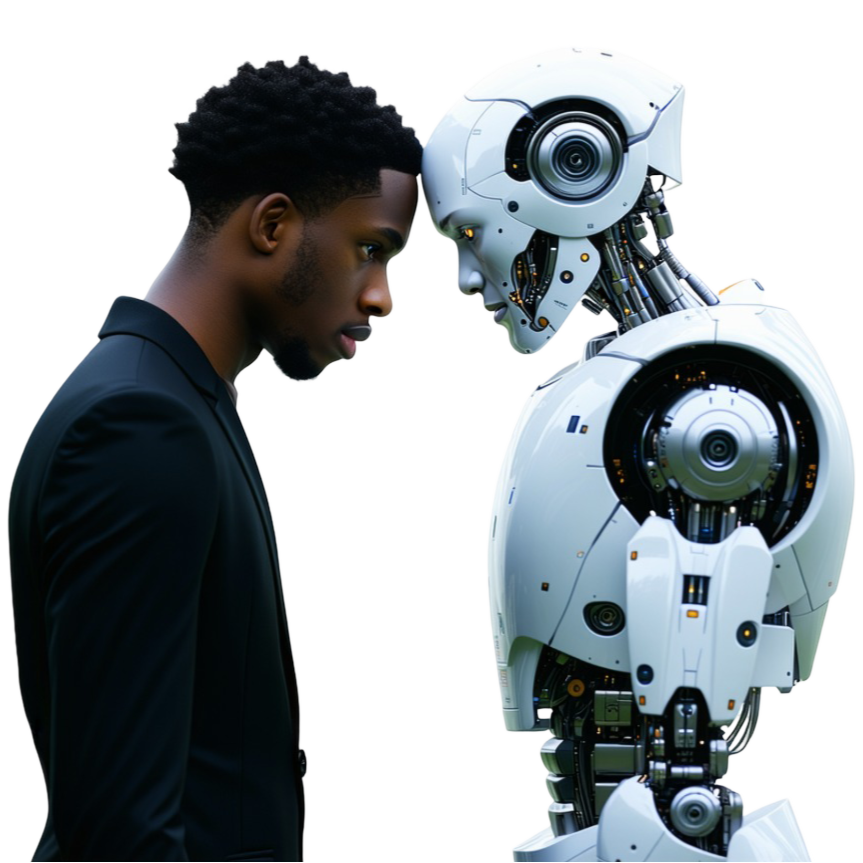Have you ever been caught writing your English project with AI? My classmate wrote a beautiful dystopian story with AI, and after many conversations with teachers he received a conduct record. As artificial intelligence (AI) becomes increasingly embedded in our daily lives, it’s imperative to reflect on how this technology influences our sense of self, creativity, and autonomy. While AI offers remarkable efficiencies and capabilities, we must ensure it’s not diminishing our creativity, spreading false information, or putting users’ data at risk.
Let us slide into your dms 🥰
Get notified of top trending articles like this one every week! (we won't spam you)AI is taking away our humanity
On Nov. 30, 2022, ChatGPT was released, and it marked the start of the era where students no longer have to write, draw, and calculate. AI tools proliferated in creative industries. For instance, Netflix’s animated science fiction short film “The Dog & The Boy,” talking about the friendship between a boy and a robot dog, exemplifies the blend of AI technology with traditional storytelling. The creators used AI to draw the background for the animation, saying they didn’t have enough resources to pay animators. The unique ways human beings could have created the background to illustrate the story were absent. If humans were creating the background, there might be more diverse ways the background color would visually resonate with the characters to evoke emotions, taking away the human emotions that the film could convey.

Image Credit: Stable Diffusion 3.5 Large from Wikimedia Commons
Of course, AI can help students with repetitive tasks such as organizing documents, calculating statistics, or researching. Students can then focus on the creative and imaginative aspects of their work. For example, when writing a history essay, you could type, “Find me five reliable sources on the medication used during surgery in the Roman Empire.” AI will then spit out five links. However, it’s important not to type, “Write me a paragraph about the medication used during surgery in the Roman Empire.”
It’s okay to have AI do the tiring work of looking for links online to increase your working efficiency. However, the actual work of weaving the available information together into a net should be done by people. Every person has a different way of weaving the net, but AI will give different users the same “net.” Relying on AI to write for us diminishes human creativity and gradually pushes us toward a uniform way of thinking. If everyone just uses AI-generated content, it’s inevitable that the overall diversity of ideas across all fields will decrease.

Take the Quiz: Which ’90s Movie Character Are You?
Are you ready to travel back to the iconic ’90s and discover which unforgettable movie character matches your personality? Take this quiz to find out!
AI isn’t 100% accurate
Misinformation can be easily spread if users copy and paste the generated content without thinking or fact-checking. On Nov. 15, 2022, Meta released an AI tool called Galactica, a new large language model designed to assist scientists. Meta took down Galactica only three days after the release. Even though Galactica featured 48 million examples of scientific articles, websites, textbooks, lecture notes, and encyclopedias, it was not able to distinguish between true and false. It made up fake papers and attributed them to real authors. Therefore, over-reliance on the big language models can lead to false information and plagiarism for students. For example, when I was using AI to find research papers about confidence leading to success, the links it provided were all invalid links with made-up titles and contents. If I were to use the source without checking the link, I could be accused of academic dishonesty, and my credibility as a writer could be seriously damaged.

Image Credit: Fernando Arcos from Pexels
AI can leak your private information
When you are using AI, AI is also using you. Training new models always requires a large amount of data, which largely comes from users. However, your personal information, including your phone number, address, occupation, and daily habits, could be sold by companies interested in profiting from your information or used by individuals with malicious intentions. In 2023, for example, the OpenAI CEO admitted that some users on ChatGPT could see others’ conversation titles—short summaries that label the chat—due to a system bug. The more we depend on AI, the more likely we are to share our personal information with it, which could be leaked and used against us.
While AI is powerful and can do almost anything for us, we need to use it carefully—it can lower our creativity, spread false information, and risk our privacy. Today, educators, policymakers, creators, and students need to work together to build systems that balance the convenience AI brings with the problems it can cause.













